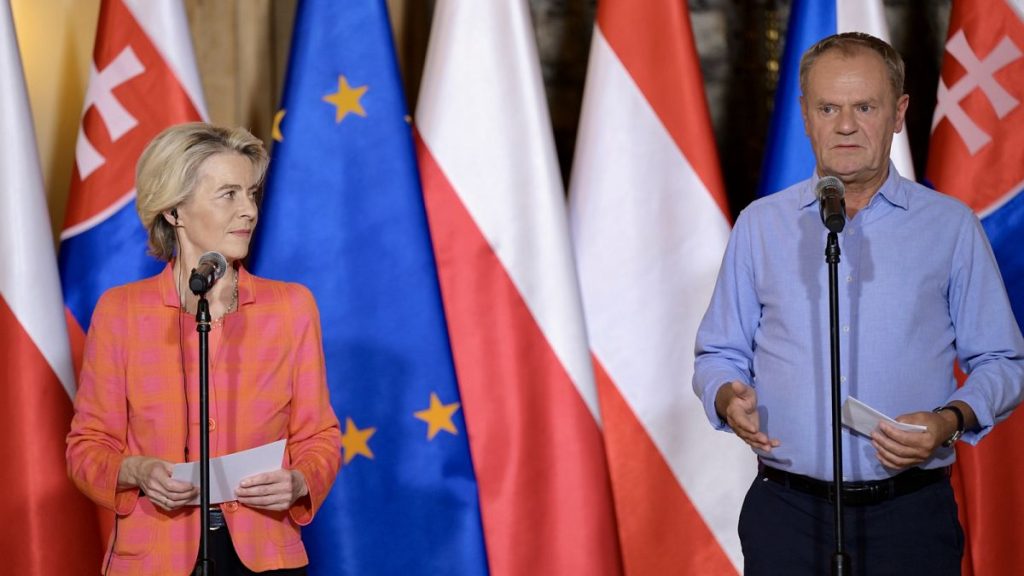Donald Tusk’s proposal to implement a “temporary territorial suspension of the right to asylum” has faced criticism from the European Commission, which emphasizes the importance of providing access to the asylum procedure as required by EU and international law. Tusk justified his plan by citing the migration flows influenced by Russia and Belarus, which have increased in Poland since August 2021. The announcement has come at a politically sensitive time when European governments are taking more assertive measures to control irregular migration, challenging established legal norms. The Commission stressed the dual responsibility of protecting external borders from threats while still upholding asylum rights, noting that the two tasks are not mutually exclusive.
The right to asylum has a long-standing basis in international law and is enshrined in the EU’s Charter of Fundamental Rights, mandating governments to review asylum claims diligently and issue reasoned decisions, with the right to appeal. The principle of non-refoulement prohibits the forcible return of migrants to countries where they may face harm. Tusk has expressed his intention to seek recognition in Europe for his decision to suspend the right to asylum temporarily, accusing Russia, Belarus, and human traffickers of exploiting the asylum system. Other countries, like Finland, have also implemented emergency laws to combat instrumentalized migration, drawing concerns from legal experts and humanitarian organizations about potential rights violations through pushbacks.
Tusk’s stance against the New Pact on Migration and Asylum, which Poland rejected alongside Hungary, aims to prevent what he sees as a security threat posed by European ideas. The Pact, set to come into force in 2026, includes provisions for “mandatory solidarity” among member states in managing asylum seekers, giving countries various options to participate. The Crisis Regulation under the Pact addresses sudden influxes of migrants and instances of instrumentalization, as seen in Poland and the Baltics. Despite Poland’s opposition, the Commission emphasized the binding nature of the Pact for all EU member states and reiterated the importance of ensuring access to asylum procedures.
Migration will be a key topic at an upcoming EU summit, given recent developments such as Germany’s reinstatement of border controls, the Netherlands’ request for an opt-out clause (rejected), and Hungary’s retaliatory threat to transport migrants to Belgium. A group of 17 European countries has called for a “paradigm shift” in deporting rejected asylum seekers, emphasizing the need for innovative solutions. In 2023, the EU recorded 380,000 irregular border crossings and received 1,140,000 claims for international protection, with most applications coming from individuals who entered the bloc legally. These trends highlight the ongoing challenges and debates surrounding migration policy within the EU.
Overall, the clash between Donald Tusk’s proposal for a temporary suspension of the right to asylum and the European Commission’s commitment to upholding asylum rights underscores the complex and contentious nature of migration policy in the EU. As governments grapple with surges in irregular migration, intensified by geopolitical influences, they must navigate between safeguarding their borders and fulfilling legal obligations to asylum seekers. The rejection of the New Pact on Migration and Asylum by Poland and Hungary reflects broader tensions within the EU concerning the distribution of asylum seekers and the balance between solidarity and national security interests. The upcoming EU summit will provide a platform for further discussion and potential resolutions to the ongoing challenges in migration governance across the bloc.


